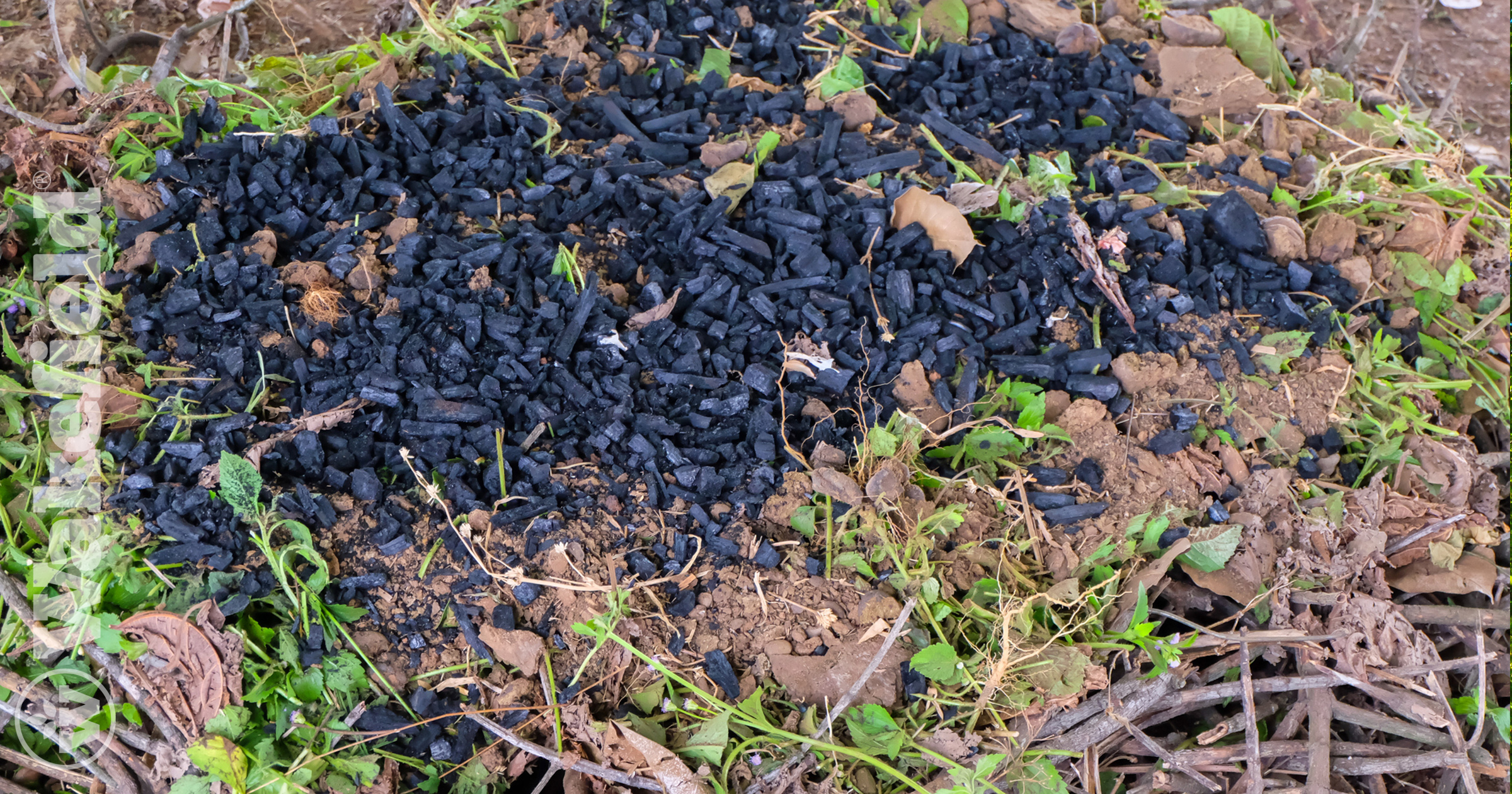What Is the Difference Between Biochar and Compost?

When it comes to biochar vs. compost, what is the difference? Both serve as soil amendments and complement each other in many ways, but biochar stands out because it can keep nutrients from leaching into the soil.
While both have the ability to sequester carbon dioxide in the soil, biochar is far more effective at it.
There is a difference between biochar and compost, but our customers looking to improve their soil quality and fertility can benefit from using both. At Wakefield BioChar, we offer a selection of premium biochar products.
Can I Add Biochar to Compost?
Depending on your gardening goals, mixing biochar with compost is often recommended for the best results.
Many homeowners compost their food and yard waste to keep it out of landfills and create their own soil amendments. The United States Department of Agriculture (USDA) describes composting as “the process of recycling organic materials into an amendment that can be used to enrich soil and plants.”
Producing your own compost is a worthy endeavor but not a quick fix. Bacteria, yeast, and fungi break down organic materials to eventually yield naturally biodegraded compost. It can take months or even a year or two of regularly turning the compost pile weekly or more often to yield usable compost.
That is why purchasing commercially available compost is the best route for many gardeners. Our premium compost is made from untreated wood scraps.
Is Compost Better Than Biochar?
Exactly what is biochar, and how does it differ from compost?
Both biochar and compost have the ability to enrich soil, retain water, and reduce plant disease. Both contain carbon, which is necessary for healthy soil. However, biochar’s superior ability to sequester carbon dioxide makes it a major component in the fight against climate change.
“Biochar” refers to biomass heated to high temperatures in a no-oxygen environment, a process known as pyrolysis. What is left over after pyrolysis is biochar. While similar to charcoal, biochar is far more porous. This porosity allows biochar to boost soil structure while providing a home to beneficial microbes that help enhance plant growth.
An Italian study published in the August 24, 2022 edition of the journal Agronomy compared the application of biochar, compost, and a mixture of the two on crop yields in volcanic Mediterranean soil. Researchers found that, “Our results show that soil chemical compositions varied significantly between the first and second year of treatments. The addition of biochar alone or in combination with compost significantly increased soil organic carbon content over two years,” adding that soil carbon is widely recognized as “a key indicator of soil fertility.”
In a two-year study involving a drip-irrigated organic olive crop in calcareous soil in Southeast Spain, published in January 2016, biochar increased total organic carbon content. Where a biochar and compost mix was applied, the amount of dissolved organic carbon and water-soluble nitrogen “significantly increased.”
If your soil is sandy or otherwise marginal, biochar can make a tremendous difference in its quality and fertility.
What to Know Before Applying Biochar
When applying biochar to your lawn or garden, it’s important to activate it. That generally means mixing it with compost to provide microbes and nutrients – or purchasing our pre-mixed compost + biochar blend.
Keep in mind that once applied, biochar lasts in the soil for decades, if not centuries. Do not apply more than the recommended amount of biochar. There is no benefit to using more biochar than necessary.
There are many different ways to use biochar, and not all of them are related to trees, lawns, or gardens. Most of these non-plant-focused biochar applications do not require any use of compost.
Some non-plant-focused biochar applications include:
Buy Certified Biochar
At Wakefield BioChar, we are committed to improving soil to better our planet. Our certified biochar earns top certifications for meeting environmental standards. This includes adhering to sustainable forestry practices to create our biochar. Our biochar is perfect for any type of plant, ranging from farm fields to trees and shrubs and lawns to vegetable and flower gardens and indoor plants.





